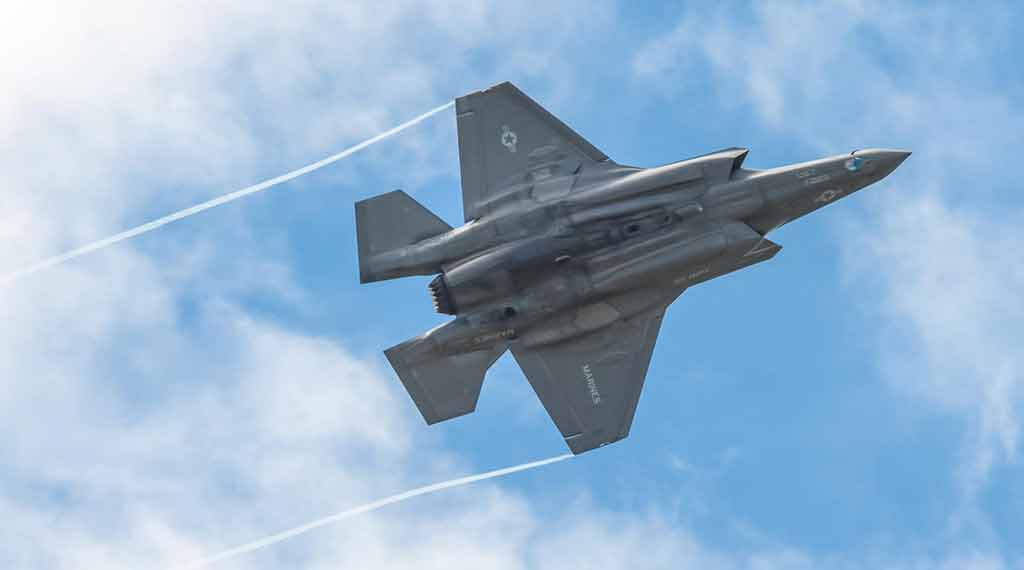Biden halts UAE F-35 sale in nod to Iran

Originally published by Asia Times
New administration’s punitive decision could lead Israel into bombing Iran’s weapons-making facilities
President Joe Biden has halted the sale of F-35 stealth jets to the UAE, even though they were promised as part of the Abraham Accords. The administration has raised concerns the UAE might use these jets against the Houthis.
The Houthis have no air force and they have only rudimentary air defenses.
The UAE has a decently-sized air force made up of seventy seven F-16’s and sixty three Mirage 2000’s.
In respect to the Houthi insurgency in Yemen, the UAE operates with Saudi Arabian air assets. Saudi Arabia has 42 F-15’s , 74 light attack F-5’s and 44 Tornado fighters.
There have been a number of incidents in the past where the Saudis and UAE have allegedly hit civilian targets, either on purpose or by accident. A number of Democratic congressmen and women have alleged that these attacks were human rights violations, although they never complain about Houthi human rights violations or the frequent missile and drone attacks launched by the Houthis against UAE and Saudi targets.
In any event, the F-35 is mostly a worthless airplane respecting the Houthi insurgency. It is an air superiority fighter plane, not really a fighter bomber, and certainly far inferior to the F-15 for causing damage in ground attacks. There is no reasonable case that the sale of F-35’s has anything at all to do with Houthis, other than as a Biden administration punishment of the UAE.
Why would Biden want to punish the UAE and weaken the ability of the Gulf states to confront growing Iranian regional power and, sooner rather than later, Iran’s acquisition of nuclear bombs and missile delivery systems?
Even if Biden changes his mind, the damage is already done because the UAE (not to mention Saudi Arabia) has now lost face respecting Iran and the ability to counter the Iranian threat.
Meanwhile the Biden administration is moving to renew the JCPOA “agreement” (Joint Comprehensive Plan of Action (JCPOA) is a detailed, 159-page agreement with five annexes reached by Iran and the P5+1 –China France, Germany, Russia, the United Kingdom, and the United States– on July 14, 2015. The nuclear deal was endorsed by UN Security Council Resolution 2231, adopted on July 20, 2015.) without any modification and most likely will lift economic sanctions on Iran, enabling it to continue its military buildup and atomic weapons program.
The Israelis are already deeply alarmed and, while not explicitly stated, if the administration goes ahead with its JCPOA plan, the Israeli Air Force will attempt to take out Iran’s nuclear and missile assets if given the go-ahead. From Israel point of view, Iran is already close to an atomic weapons breakout, but the US backing for the JCPOA is likely to give the Iranians cover to really accelerate their nuclear drive. Starting last month, Iran was enriching uranium (U-235) at 20%. Once there is enough U-235 at 20%, it is relatively easy to increase the U-235 percentage to 95%, what is needed for an atomic bomb.
There is yet another consequence. Iran is pursuing different ways to make atomic weapons, using either a pure uranium bomb (like Hiroshima), boosted bombs (perhaps using thorium which is available from North Korea), or alternatively building plutonium-based weapons. Plutonium weapons require a complex triggering mechanism as opposed to a uranium bomb that can employ a much simpler gun-type initiator. Unlike the Nagasaki bomb that was plutonium-based, the Hiroshima U-235 bomb did not require testing because the mechanism was simpler.
The regional issue is whether to wait for Iran to have nuclear weapons or to preempt and destroy Iran’s weapon’s making facilities and missile launch platforms.
Meanwhile the Biden decision no doubt will confirm a looming Israeli view that the US administration is tilting to Iran and that the nuclear threat will get worse unless it is countered. In short, the Biden decision is destabilizing.
- Trump and Ukraine: what Russia wants, what Trump could do - November 8, 2024
- North Korean troops in Kursk could backfire on Moscow, Pyongyang - November 1, 2024
- Secure enclaves: bad CHIPS Act idea wasting billions - August 12, 2024
